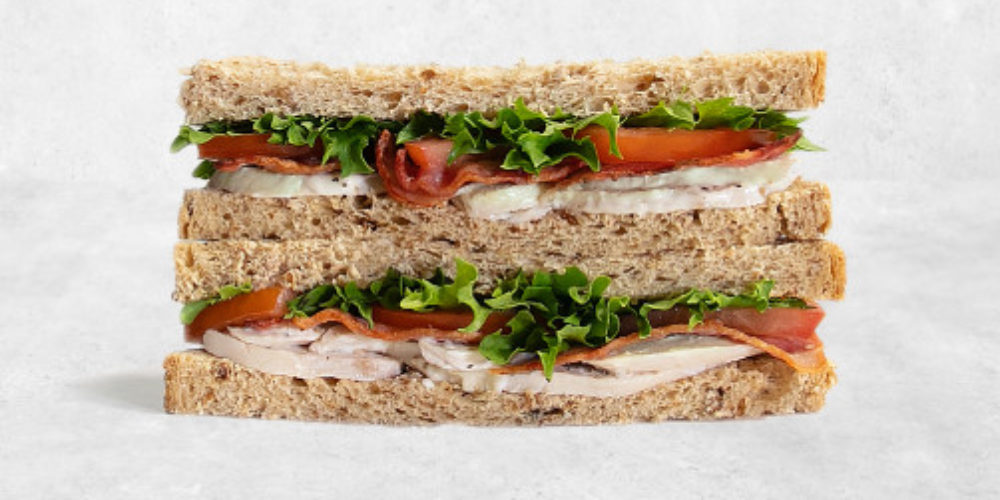If your business takes one in the face, get back up quickly

The British love their sandwiches. Ever since the 4th Earl of Sandwich popularised the idea of fillings placed between two slices of bread (supposedly to allow him to do other things like work at his desk, or play cards, while eating) the sandwich has been a phenomenon.
When I was studying and working in London, I marvelled at the ubiquity of the sandwich. Sandwich bars were around every corner; and a sandwich was the lunch of choice of the working or studying Londoner. A different boom began in the 1980s when some companies scaled the business up and started offering pre-packaged sandwiches, more convenient to carry around without making a mess.
In 1986 a new entrant arrived on the London sandwich scene. Pret a Manger did everything right. First, the founders opened just one shop, selling just a few sandwiches and coffees per day. They learned the trade. It took them three years to open a second outlet; but the business took off from there. Before 2020 dawned Pret was selling millions of coffees and sandwiches per day, through 400 UK shops.
What caused this remarkable growth? The busy-busy-busyness of the London office worker. As I discovered when working in that city, lunch generally means a quick walk to a sandwich shop and back, to eat in front of the computer. Pret spotted this trend and reaped big. They combined Londoners’ love of the sandwich with quick-fire convenience. The sandwiches were ready-made; the stores were within a street or two for workers in the most dense office areas; the service was super-quick.
Pret had other winning ideas, too. Despite selling packaged food, it emphasised freshness. It didn’t just sell the standard ham-and-cheese or egg-salad fare; Pret sandwiches were things like Mozzarella, Pesto & Roasted Tomatoes Focaccia, or Hoisin Duck Salad Wrap – all for premium prices, sold by energetically upbeat staff members.
Perhaps the most important innovation underlying all of this was that Pret was a data-mining pioneer. As a recent piece in Wired UK revealed, Pret invested in data gathering and predictive algorithms that continuously adjusted production and delivery for each store every day. Its new store locations were also predicated on hundreds of data points, using historical sales, office uptake, visibility, demographics and even mobile foot traffic to drive the decision to open a new store.
For years, it worked. Its latest results showed an annual turnover of over £700 million (nearly KES 100 billion). Not bad for what started as a single sandwich shop.
And then the coronavirus hit.
Footfall this year in Pret’s London sites is the lowest on record; a decade of growth has been wiped out. Nearly a third of its employees have been made redundant; 30 stores are closed. Its biggest strength – the busy, dense, cosmopolitan city of London – became its glaring weakness as the capital hollowed out. Now, with the working-from-home experiment yielding permanent shifts in office usage, Pret is caught flat-footed.
What did Pret do wrong? Nothing, really. Even the best strategist would not have seen this coming. No one was going to dampen the growth drive because of hypothetical fears about a possible virus – even if that had been surfaced in the planning.
Given Pret’s history of innovative thinking and relentless execution, I feel this setback will be momentary. It will take a big hit this year, no doubt, but it will use that experience to execute a fundamental reset (as many of us must). Expect Pret to follow the market to the suburbs; to invest heavily in home delivery; to rethink its menu offerings; even to open ‘dark’ (or ‘cloud’) kitchens which don’t sell to walk-in customers but use data to optimise home delivery. In this way it will adjust itself to a new normal. The company’s CEO (who started working life as a burger-flipper at McDonald’s) said recently: we used to follow the skyscrapers; now we will follow the people.
Lessons for the rest of us? You can be doing everything right in your business, and still get knocked down by a sucker punch from nowhere. The point is not to have perfect strategy and immaculate foresight; it is to have the agility and character to stand up again, shake yourself off, and take a hard look at the new reality. You can’t predict every sudden shift in the market, but you can execute some rapid pivots and some far-reaching resets.
For that to happen, however, you need not only to have nimble managers; you require a board and shareholders equally willing to accept bad short-term numbers and invest in fresh new paradigms. How many of us have those?
(Sunday Nation, 27 September 2020)

Buy Sunny Bindra's book
UP & AHEAD
here »
Popular Posts
- Change is so difficult—and so necessaryApril 27, 2025
- What should your business do in a downturn?April 20, 2025
- Does your business behave like a cheapskate?April 13, 2025
- Could your disadvantage be flipped into success?April 6, 2025
- Do you think people respect you for your wealth?March 30, 2025















